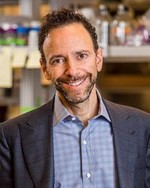The Organizational Nuance Of An Immuno-Oncology Startup

By Matthew Pillar, Editor, Bioprocess Online

Back in 2008, Jeff Wolf was considering building a biotech around what he terms a renegade concept dreamt up by the late Dr. Eckhard Podack, chair of the Department of Microbiology and Immunology at the University of Miami Miller School of Medicine.
The idea was to develop a cancer “vaccine” comprising irradiated cancer cells that had been genetically engineered to continually secrete gp96, a heat shock protein in all of our cells that’s demonstrated an ability to induce immunity against antigens in the cell from which it came.
Wolf, a serial biotech entrepreneur and venture capitalist with a self-guided education in science, sought expert opinion. A host of immunologists told him the concept was interesting. They also advised him not to build a company on it. “They said, ‘everyone knows that you're never going to be able to activate the immune system to treat cancer,’” Wolf recalls.
That same year, Wolf founded Heat Biologics.
Flash forward twelve years. Immuno-oncology is one of the hottest and most promising areas of biotech development, and that development is being backed by healthy investment activity.

- Take the risk. Early-stage biopharmas walk a very thin line between taking chances and de-risking their operations. When it comes to the science, Wolf advises the former “There are times when you listen to the experts, and there are times that you don't,” he says. “Great revolutions in science have come about from the renegades, from ideas that were dismissed by more conventional scientists.” Risk requires fortitude, and so does leading a biopharma startup for the long-haul. “We knew it was going to take years to prove out, but we also knew that if it worked, it could be transformative.”
- Take the right people on the journey. Asked where to begin the discussion about his organizational philosophy on launching an immuno-oncology startup, Wolf offers zero hesitation. “People,” he says. “We brought on immunologists and cancer biologists who really understand the biology of cancer and the immune system, the gp96 mechanism, and the promise of T Cells in the treatment of cancer.” Wolf says the team, which now totals 35, was purpose-built to develop this specific drug. “It took some time to assemble this team, and we made some hiring mistakes along the way that we didn’t hesitate to correct.”
- Acquire complementary technologies. In 2017, Heat’s acquisition of Pelican Therapeutics brought PTX-35 to its pipeline. That T cell co-stimulator targeting TNFRSF25 received IND clearance from US FDA, and a Phase 1 trial in solid tumors has been initiated.
- It takes a lot of money. “We knew we were going to need a lot of money to develop this platform,” says Wolf. That realization grew as the potential ubiquity of the platform for a number of indications came to light. “As we approached the cost of running oncology clinical trials in particular, we took the company public in 2013,” he explains. Since then, the company has raised more than $200 million, which Wolf attributes to the public markets opening up access to capital for the company.
But, having the resources necessary to move development forward isn’t just about raising money, it’s about keeping it. Developing and manufacturing biologics is an incredibly expensive endeavor. Wolf admits that’s been a particular challenge, especially now as the company, like so many, has turned a portion of its attention to COVID-19 vaccine development. Its running two shifts to maintain momentum on all its programs. But, says Wolf, “Control of manufacturing and clinical costs, in particular, is part of our DNA here. Our finance department has formal standards for holding the organization accountable.”
It took some risk acceptance for Wolf to refuse to heed the advice of experts back in 2008, but 12 years later the science he pinned his hopes on has taken Heat Biologics well into a phase 2 clinical trial in non-small cell lung cancer and shows promise against COVID-19 in pre-clinical animal testing. It’s worth noting that the company is far from a one-trick pony. Its pipeline exhibits diversity beyond gp96 with the initiation of two more phase 1 trials (one cell therapy and one antibody) for solid tumors.
Wolf shares a whole lot more on the science, the pipeline, and how he held the immuno-oncology company together when immuno-oncology wasn’t cool on this episode of The Business Of Biotech: Summer Executive Sessions.
